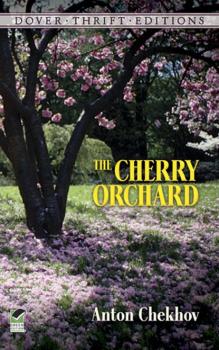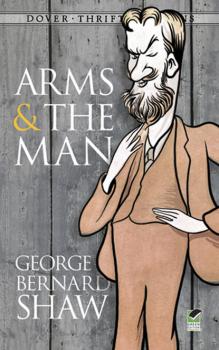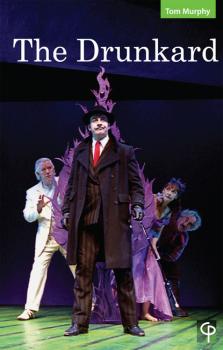ТОП просматриваемых книг сайта:
Зарубежная драматургия
Различные книги в жанре Зарубежная драматургия, доступные для чтения и скачиванияАннотация
The Cherry Orchard was first produced by the Moscow Art Theatre on Chekhov's last birthday, January 17, 1904. Since that time it has become one of the most critically admired and performed plays in the Western world, a high comedy whose principal theme, the passing of the old semifeudal order, is symbolized in the sale of the cherry orchard owned by Madame Ranevsky.The play also functions as a magnificent showcase for Chekhov's acute observations of his characters' foibles and for quizzical ruminations on the approaching dissolution of the world of the Russian aristocracy and life as it was lived on their great country estates. While the subject and the characters of the work are, in a sense, timeless, the dramatic technique of the play was a Chekhovian innovation. In this and other plays he developed the concept of «indirect action,» in which the dramatic action takes place off stage and the significance of the play revolves around the reactions of the characters to those unseen events.Reprinted from a standard edition, this inexpensive well-made volume invites any lover of theater or great literature to enter the world of Madame Ranevsky, Anya, Gayef, Lopakhin, Firs, and the other memorable characters whose hopes, fears, loves, and general humanity are so brilliantly depicted in this landmark of world drama.
Аннотация
Widely considered the most popular modern French play, Cyrano de Bergerac has dazzled audiences with its wit and eloquence since it premiered in 1897.Cyrano, a quarrelsome, hot-tempered swordsman, as famous for his dueling skills and pugnacity as for his inordinately long nose, is hopelessly enamored of the beautiful Roxane. She, in turn, is in love with Christian, a handsome but inarticulate and slow-witted suitor. Asked for help by Christian in wooing Roxane, Cyrano pours out his heart in romantic dialogues — delivered under cover of night and dense foliage — and through ardent love letters written in the name of Christian.Presented here in a rich blank verse translation by poet Louis Untermeyer, this beloved romantic comedy will be warmly received by theater buffs as well as students and teachers of drama and literature.
Аннотация
In the opening scene of Arms and the Man, which establishes the play's embattled Balkan setting, young Raina learns of her suitor's heroic exploits in combat. She rhapsodizes that it is «a glorious world for women who can see its glory and men who can act its romance!» Soon, however, such romantic falsifications of love and warfare are brilliantly and at times hilariously unmasked in a comedy that reveals George Bernard Shaw at his best as an acute social observer and witty provocateur. First produced on the London stage in 1894, Arms and the Man continues to be among the most performed of Shaw’s plays around the world. The play is reprinted in its entirety here from an authoritative British edition, and is complete with Shaw's stimulating preface to Volume II of Plays: Pleasant and Unpleasant.
Аннотация
Ours would appear to be an era of unprecedented variation in the mediation of meaning – television, computer, the older forms of radio and print. Since, however, such profusion of resources has not of itself guaranteed enhanced profundity or sophistication in our modes of understanding – psychological, sociological, philosophical, historical, and theological – the issue of the continued relevance of cultural forms, dependent both on the human voice and on ritualization, presents itself for consideration. How may modern people most tellingly relate to such overwhelmingly verbal processes as teaching, be it an erudite lecture or a classroom lesson with infants? Is singing, in the words of Tom Murphy, ‘the only way to tell people who you are’? What, in particular, is the contemporary usefulness for the building of societies of one of our oldest and culturally valued rituals, that of drama? The Fourth Seamus Heaney Lectures, ‘Mirror up to Nature’: Drama and Theatre in the Modern World, given at St Patrick’s College, Drumcondra, between October 2006 and April 2007, addressed these and related questions. The gifted play director, Patrick Mason, spoke with exceptional insight on the essence of theatre. Thomas Kilroy, distinguished playwright and critic, dealt with the topic of Ireland’s contribution to the art of theatre. Two world authorities, Cecily O’Neill and Jonothan Neelands, gave inspiring accounts of the rich potential of drama in the classroom. Brenna Katz Clarke, Head of English at St Patrick’s College, offered a delightful examination of the relationship between drama and film. Finally, John Buckley, internationally acclaimed composer, spoke on opera and its history, while giving an illuminating account of his own Words Upon The Window-Pane.
Аннотация
'The Drunkard is a wonderfully eloquent play.’Young Edward Kilcullen's life is blighted by alcohol. Lawyer McGinty desires possession of all the Kilcullens ever owned and relishes the prospect of his demise. However, the temperance preacher and philanthropist Sir Arden Rencelaw is at hand…Can the young Kilcullen be saved? And what is Agnes, the maniac's, hidden secret? Comedy, tragedy, heroics, villainy and song in this exuberant, life affirming version of The Drunkard.'
Аннотация
THIS lyrical drama was written about twenty-five years ago. It is based on the following story from the Mahabharata.<br><br>In the course of his wanderings, in fulfilment of a vow of penance, Arjuna came to Manipur. There he saw Chitrangada, the beautiful daughter of Chitravahana, the king of the country. Smitten with her charms, he asked the king for the hand of his daughter in marriage. Chitravahana asked him who he was, and learning that he was Arjuna the Pandara, told him that Prabhanjana, one of his ancestors in the kingly line of Manipur, had long been childless. In order to obtain an heir, he performed severe penances. Pleased with these austerities, the god Shiva gave him this boon, that he and his successors should each have one child. It so happened that the promised child had invariably been a son. He, Chitravahana, was the first to have only a daughter Chitrangada to perpetuate the race. He had, therefore, always treated her as a son and had made her his heir.
Аннотация
Darkly you sweep on, Eternal Fugitive, round whose bodiless rush stagnant space frets into eddying bubbles of light.<br><br>Is your heart lost to the Lover calling you across his immeasurable loneliness?<br><br>Is the aching urgency of your haste the sole reason why your tangled tresses break into stormy riot and pearls of fire roll along your path as from a broken necklace? Your fleeting steps kiss the dust of this world into sweetness, sweeping aside all waste; the storm centred with your dancing limbs shakes the sacred shower of death over life and freshens her growth.<br><br>Should you in sudden weariness stop for a moment, the world would rumble into a heap, an encumbrance, barring its own progress, and even the least speck of dust would pierce the sky throughout its infinity with an unbearable pressure. My thoughts are quickened by this rhythm of unseen feet round which the anklets of light are shaken.<br><br>They echo in the pulse of my heart, and through my blood surges the psalm of the ancient sea.
Аннотация
Song of the Bamboo<br><br>O South Wind, the Wanderer, come and rock me, Rouse me into the rapture of new leaves. I am the wayside bamboo tree, waiting for your breath To tingle life into my branches.<br><br>O South Wind, the Wanderer, my dwelling is in the end of the lane. I know your wayfaring, and the language of your footsteps. Your least touch thrills me out of my slumber,<br><br>Your whisper gleans my secrets.<br><br>(Enter a troop of girls, dancing, representing birds.)<br><br>Song of the Bird<br><br>The sky pours its light into our hearts, We fill the sky with songs in answer. We pelt the air with our notes When the air stirs our wings with its madness. O Flame of the Forest, All your flower-torches are ablaze;<br><br>You have kissed our songs red with the passion of your youth.<br><br>In the spring breeze the mango-blossoms launch their messages to the unknown<br><br>And the new leaves dream aloud all day.
Аннотация
[Madhav's House]<br><br>Madhav. What a state I am in! Before he came, nothing mattered; I felt so free. But now that he has come, goodness knows from where, my heart is filled with his dear self, and my home will be no home to me when he leaves. Doctor, do you think he—<br><br>Physician. If there's life in his fate, then he will live long. But what the medical scriptures say, it seems—<br><br>Madhav. Great heavens, what?<br><br>Physician. The scriptures have it: "Bile or palsey, cold or gout spring all alike."<br><br>Madhav. Oh, get along, don't fling your scriptures at me; you only make me more anxious; tell me what I can do.<br><br>Physician [Taking snuff] The patient needs the most scrupulous care.<br><br>Madhav. That's true; but tell me how.<br><br>Physician. I have already mentioned, on no account must he be let out of doors.<br><br>Madhav Poor child, it is very hard to keep him indoors all day long.
Аннотация
Sings.<br><br>We are all Kings in the kingdom of our King.<br><br>Were it not so, how could we hope in our heart to meet him!<br><br>We do what we like, yet we do what he likes;<br><br>We are not bound with the chain of fear at the feet of a slave-owning King.<br><br>Were it not so, how could we hope in our heart to meet him!<br><br>Our King honours each one of us, thus honours his own very self.<br><br>No littleness can keep us shut up in its walls of untruth for aye.<br><br>Were it not so, how could we have hope in our heart to meet him!<br><br>We struggle and dig our own path, thus reach his path at the end.<br><br>We can never get lost in the abyss of dark night.<br><br>Were it not so, how could we hope in our heart to meet him!<br><br>Song.<br><br>My beloved is ever in my heart<br><br>That is why I see him everywhere,<br><br>He is in the pupils of my eyes<br><br>That is why I see him everywhere.<br><br>I went far away to hear his own words,.....










